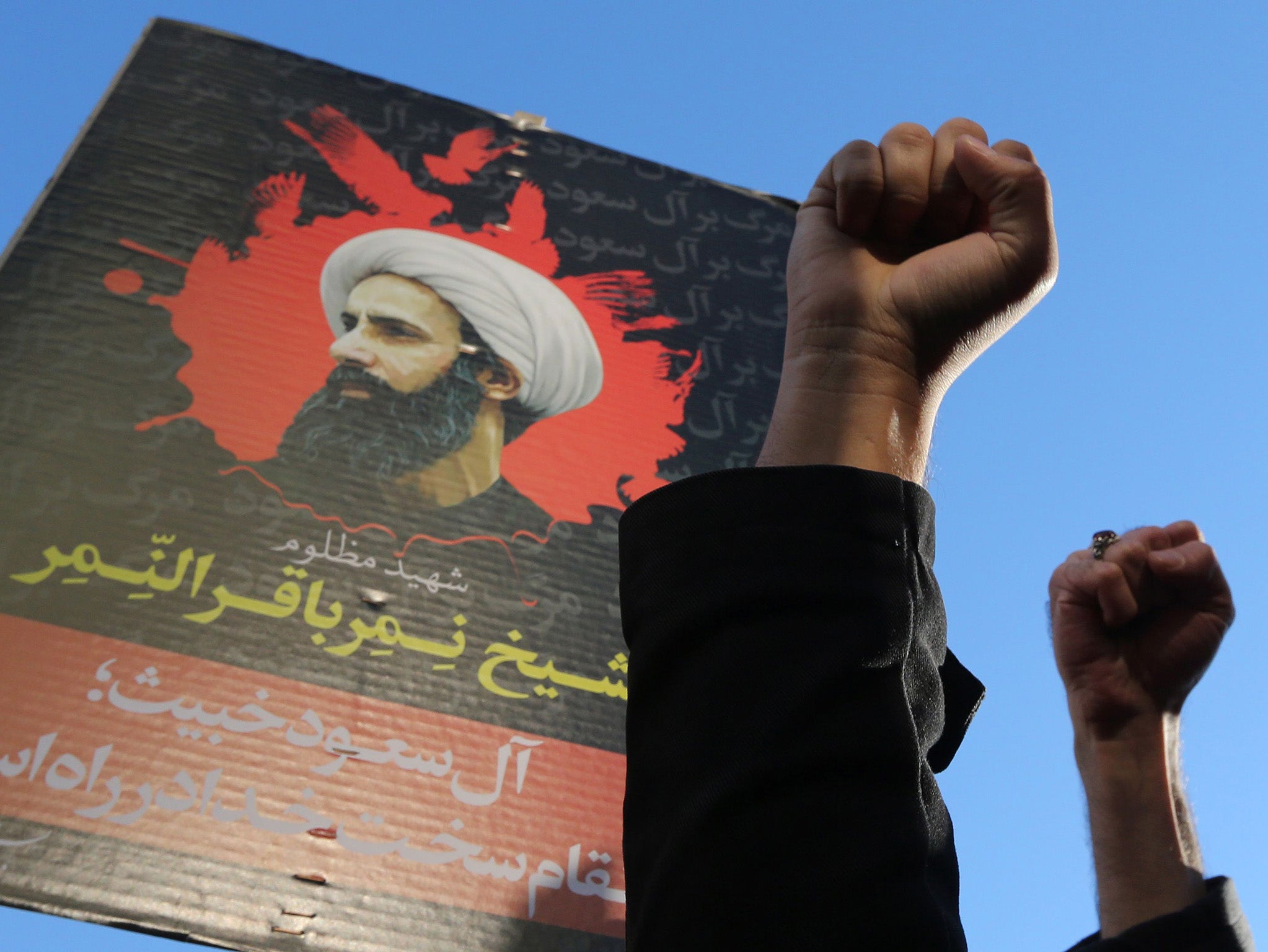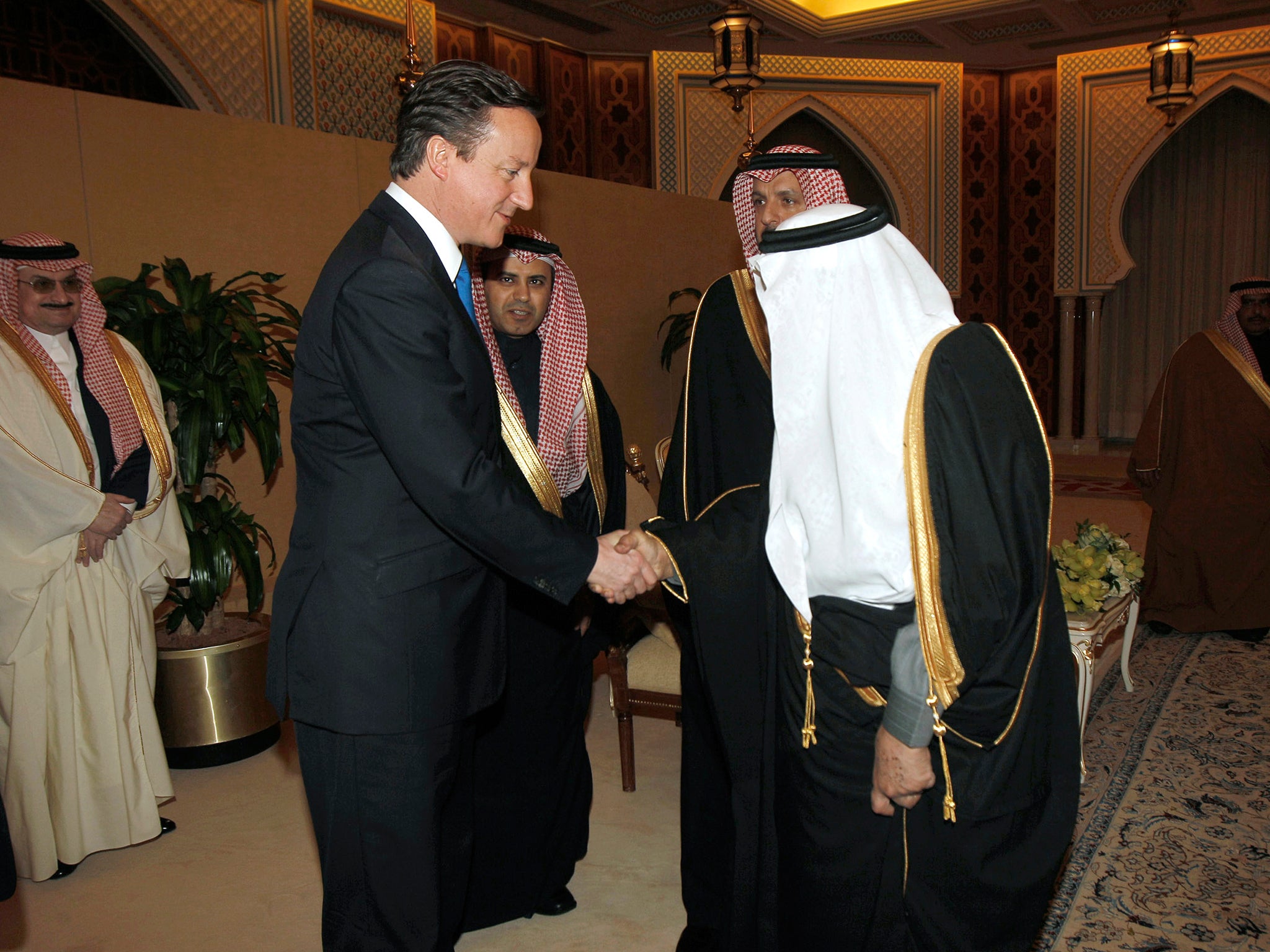Saudi Arabia on course to execute more than 100 people in first six months of 2016 as use of death penalty rises
The rate of executions so far this year has been higher than 2015, which set a 21-year record

Your support helps us to tell the story
From reproductive rights to climate change to Big Tech, The Independent is on the ground when the story is developing. Whether it's investigating the financials of Elon Musk's pro-Trump PAC or producing our latest documentary, 'The A Word', which shines a light on the American women fighting for reproductive rights, we know how important it is to parse out the facts from the messaging.
At such a critical moment in US history, we need reporters on the ground. Your donation allows us to keep sending journalists to speak to both sides of the story.
The Independent is trusted by Americans across the entire political spectrum. And unlike many other quality news outlets, we choose not to lock Americans out of our reporting and analysis with paywalls. We believe quality journalism should be available to everyone, paid for by those who can afford it.
Your support makes all the difference.Saudi Arabia could be on course to put more than 100 people to death in the first six months of this year after a dramatic surge in executions.
The death of a Nigerian man convicted of murdering a police officer on Sunday brought the total for 2016 to at least 95 people and humanitarian organisations fear the rate of killings will continue.
“Executions in Saudi Arabia have been surging dramatically for two years now and this appalling trend shows no sign of slowing,” said James Lynch, deputy Middle East and North Africa director at Amnesty International.
“The steep increase in executions is even more appalling given the pervasive flaws in Saudi Arabia’s justice system, which mean that it is entirely routine for people to be sentenced to death after grossly unfair trials.
“The Saudi Arabian authorities should end their reliance on this cruel and inhuman form of punishment and establish an official moratorium on executions immediately.”
The number of people executed is already higher than at the same point last year, when 158 people were put to death. It was the highest recorded figure in the country since 1995.
Most were beheaded using swords or killed by firing squad, with the bodies sometimes displayed in public after the executions.
Murder and drug trafficking cases account for the majority of executions, although Saudi law also allows for the death penalty for “crimes” including adultery, apostasy, blasphemy, sodomy and sorcery.
A prominent Shia cleric, Sheikh Nimr al-Nimr, was among 47 people killed in a single day in January on “terrorism” charges.
His nephew, Ali al-Nimr - who was arrested along with two others juveniles is currently on death row.
Now 21, Amnesty says he was sentenced to death based on “confessions” allegedly extracted through torture, in a violation of international human rights standards.
He was arrested aged 17 after taking part in anti-government protests and tried by a counter-terrorism court for a series of offences such as attacking security forces and committing armed robbery.
Two other young men, Abdullah al-Zaher and Dawood al-Marhoon were sentenced to death a few months afterwards, on a list of similar offences, and Amnesty International is among the groups calling for the convictions to be quashed.
The British Government said it has “regularly raised” but that under Saudi law they were considered to have been adult at the time of their alleged crimes.

Reprieve, a legal charity, said juvenile offenders were also among those executed in January, including a man thought to be 14 at the time of his arrest following demonstrations.
The organisation said that if maintained, the current pace could see more than 320 prisoners killed by the end of this year.
Saudi Arabia was among the “human rights priority countries” highlighted by the Foreign and Commonwealth Office in a recent report, although the British Government has been criticised for its close relationship and lucrative trade deals with the state.
The report said that as the principle of capital punishment is enshrined in Saudi Arabia’s Sharia law, abolition is unlikely in the near future, and that 2015’s rise in executions was partly due to long-running legal cases being concluded.
“We condemn and do not support the death penalty in any circumstances and that includes Saudi Arabia,” David Cameron said in April. “We always make representations on the death penalty.”
Join our commenting forum
Join thought-provoking conversations, follow other Independent readers and see their replies
Comments